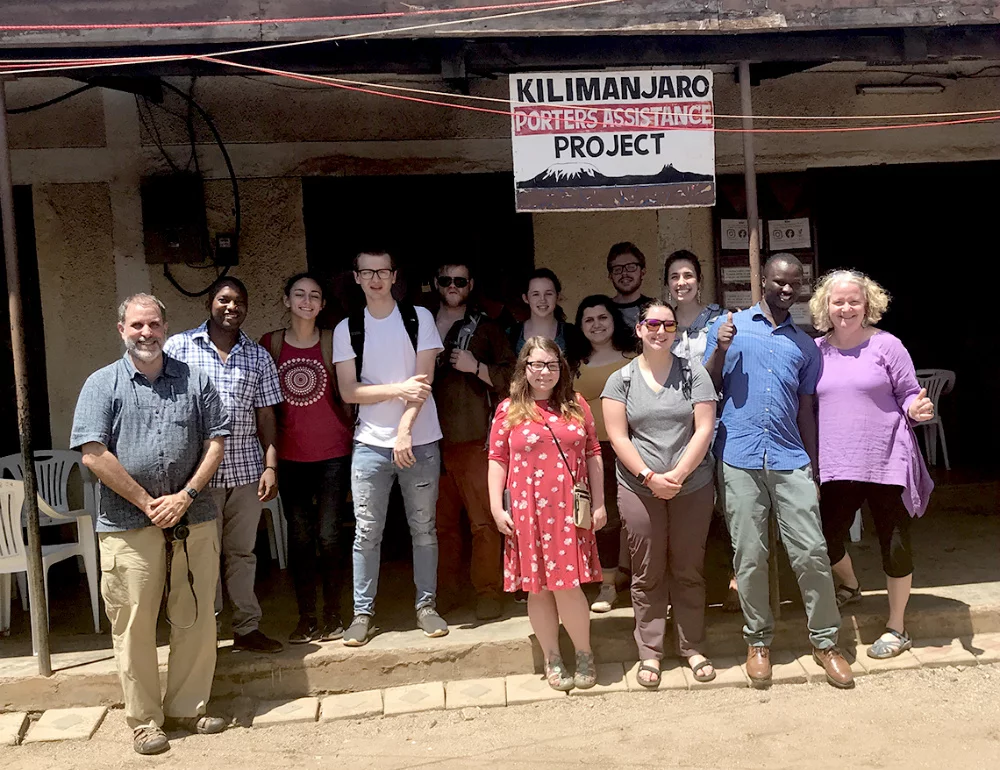UMF tourism course offers insight

Image collected
Nine University of Maine at Farmington learners, accompanied by two faculty instructors, recently returned from a travel program to Tanzania in East Africa, with a new perspective on building the world an improved place.
The UMF winter study course, which includes been offered 3 x on a biannual basis, focuses on Sustainable Tourism and Environmental Activism.
According to the United Nations Educational, Scientific and Cultural Firm (UNESCO), sustainable tourism is an evergrowing travel industry thought as, “tourism that respects both neighborhood persons and the traveler, cultural heritage and the surroundings.”
The course ran from December 27 to January 9 this season and covered from a survival lesson in Swahili; to a tour of localized villages to raised understand regional livelihoods and customs; to meetings with native tourism operators and environmental activists about community-founded conservation, wildlife corridors and property privileges for indigenous communities.
Tanzania is well-known for tourism, with the country’s network of national parks, reserves and conservation areas spanning one one fourth of the united states. While there, UMF pupils had the chance to experience eating regional foods, touring an area school, picking coffee at a good trade coffee cooperative and planting trees to fight deforestation on the slopes of Kilimanjaro.
Nik Peterson, a sophomore from Lewiston majoring found in psychology, looked forwards to finding sustainable tourism doing his thing and adding international encounter to his resume for medical university.
“You see making a notable difference as a simple thing,” said Peterson. “But a field experience such as this, where you get to see the significant impression your decisions can possess on the lives of actual people, not only changes their lives, it improvements you along the way.”
A good highlight of the travel course is a time hike in Kilimanjaro National Recreation area. Mount Kilimanjaro is the highest stage in Africa, at 19,341 feet, and the best single free-standing mountain on the globe. A huge tourist attraction, the mountain sees tens of thousands of tourists annually and generates a large number of jobs for regional porters.
Unfortunately, local people working as porters happen to be poorly educated and often don’t speak English. They may easily be victims of poor doing work conditions and inadequate wages. As a substantial part of their coursework, students visited the Kilimanjaro Porters Assistance Project, a non-earnings initiative to improve public knowing of the fair and ethical treatment of porters on Kilimanjaro.
“KPAP is an integral spouse with UMF and a real-life case in point for our college students of sustainable tourism doing his thing,” explained Linda Beck, associate dean of UMF Experiential and Global Education, professor of political research and trip leader.
The organization offers climbing gear free of charge for mortgage loan to porters and mountain crew who cannot afford the proper equipment. In addition, it educates the climbers with fundamental data concerning right porter treatment and advocates climbers to create an informed decision in deciding on a socially responsible climbing business.
“One of the major problems the porters deal with is exposure because of insufficient apparatus for the freezing climbs to the summit,” said Beck. “Each time I've offered the course during the past, we take hiking footwear and winter equipment donated by UMF pupils, staff and Farmington network members. It’s an excellent experience for our students to become a part of this latest perception of tourism, where travel and leisure not only enriches the traveler’s existence but likewise positively impacts the lives of the neighborhood people.”
Source: https://www.sunjournal.com
Tags :
Previous Story
- iOS 14 is a good chance for Apple...
- Asia Frontier Capital - Bangladesh Travel Report
- Rohas Tecnic bags power line jobs worthwhile RM192m...
- India to import palm oil from Bangladesh
- Bangladesh for better trade, investment with Turkey
- Bangladesh can export vegetables, fish to Nepal: PM...
- CamScanner is now obtainable in 4 regional languages
- Development challenges demand unified approach